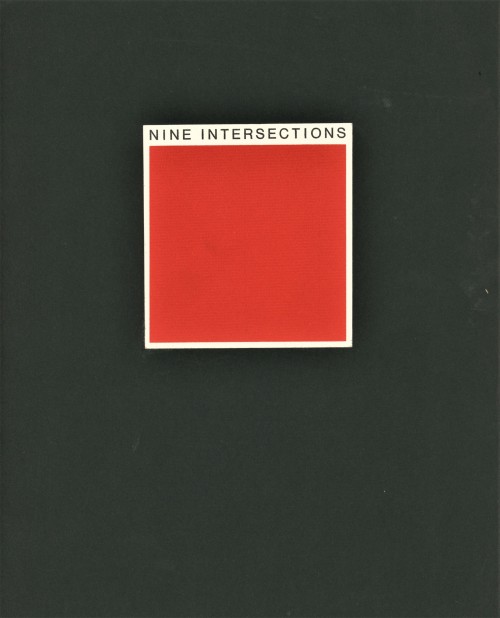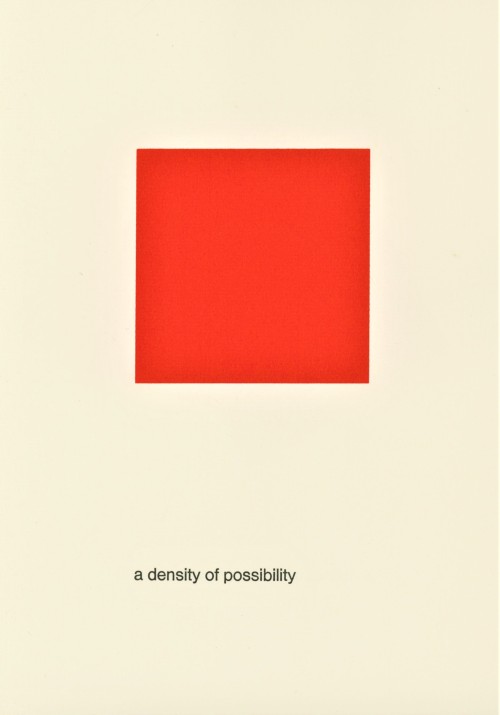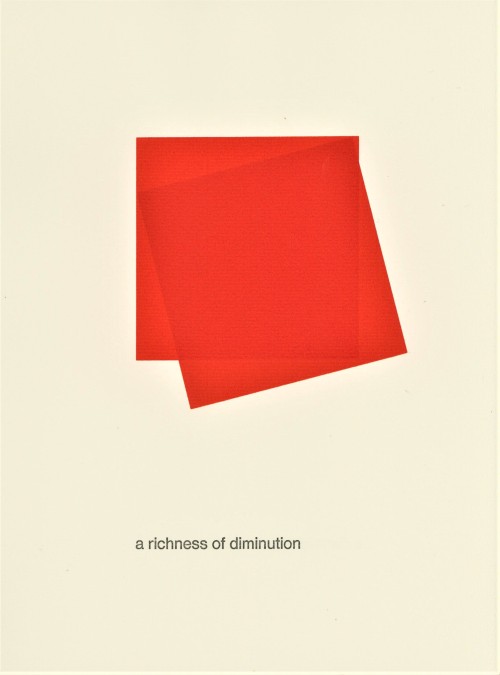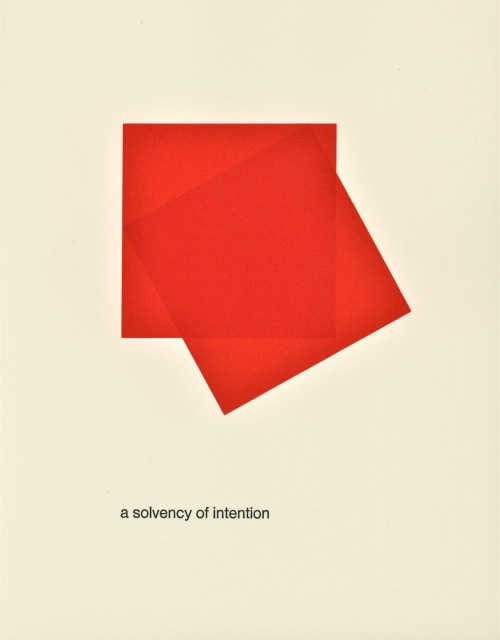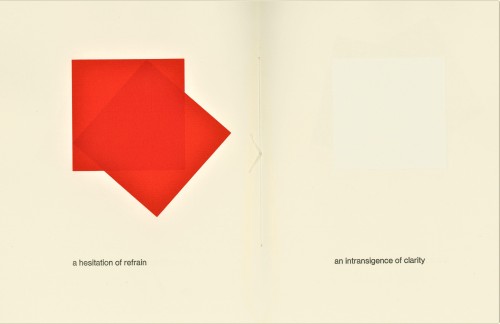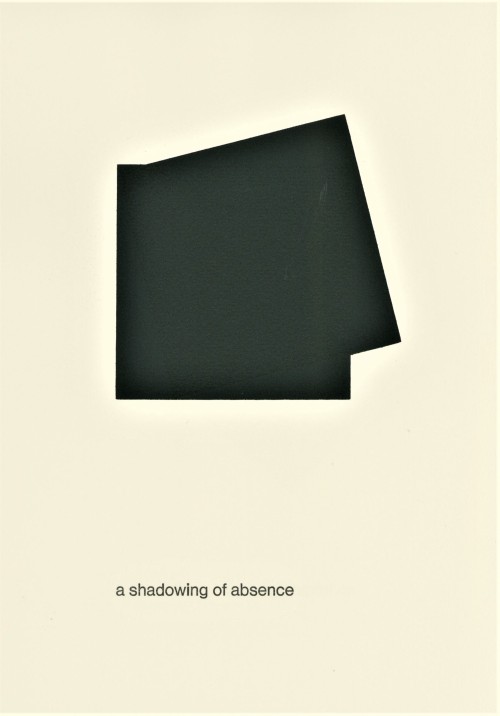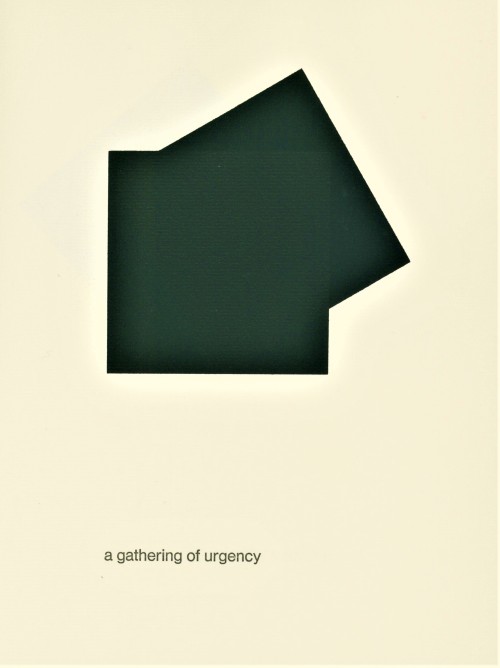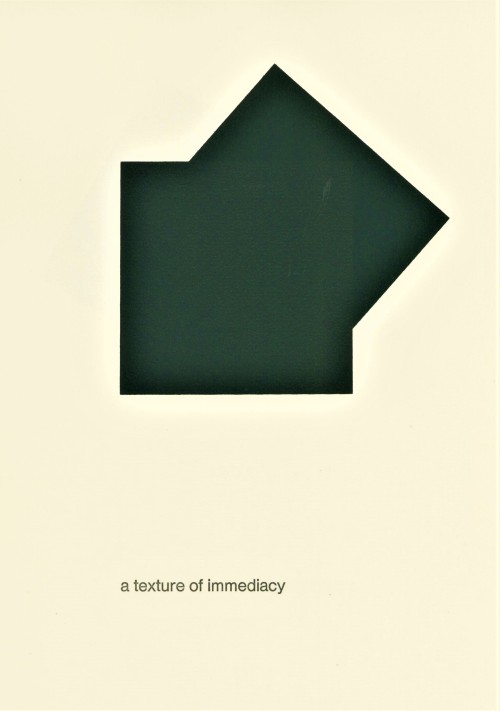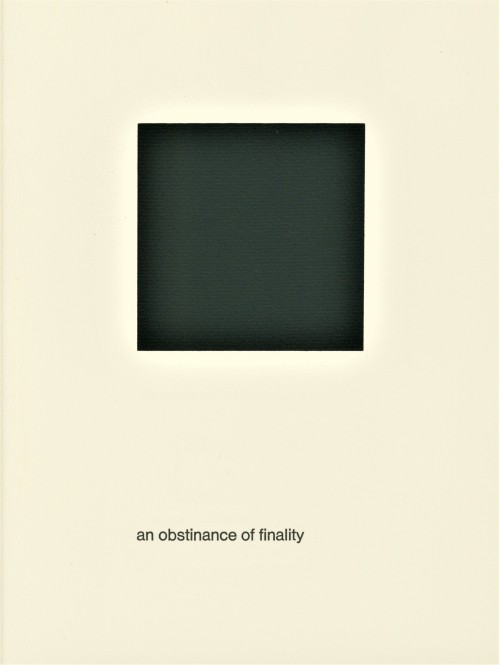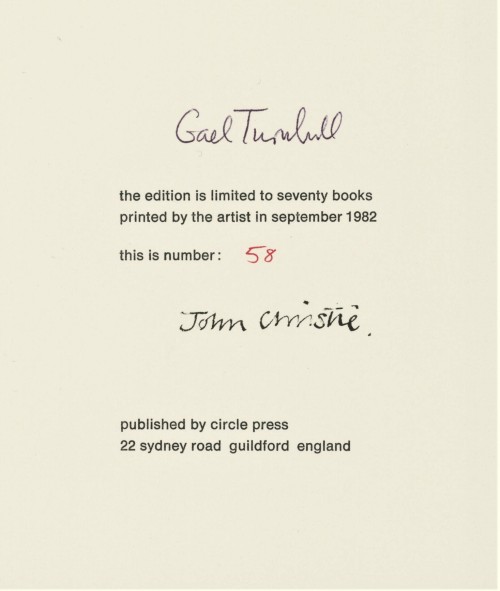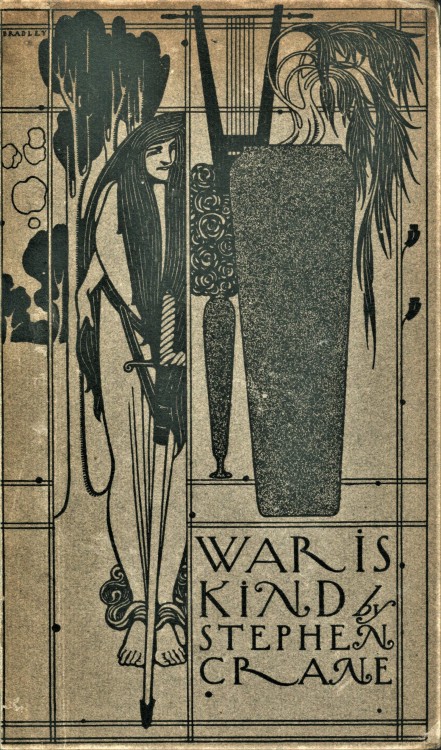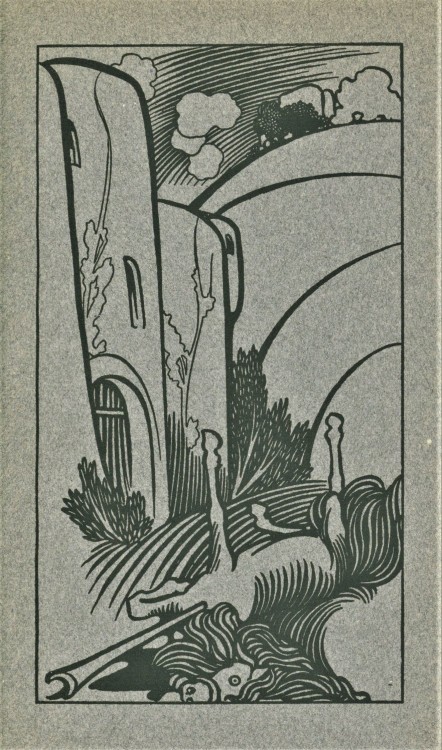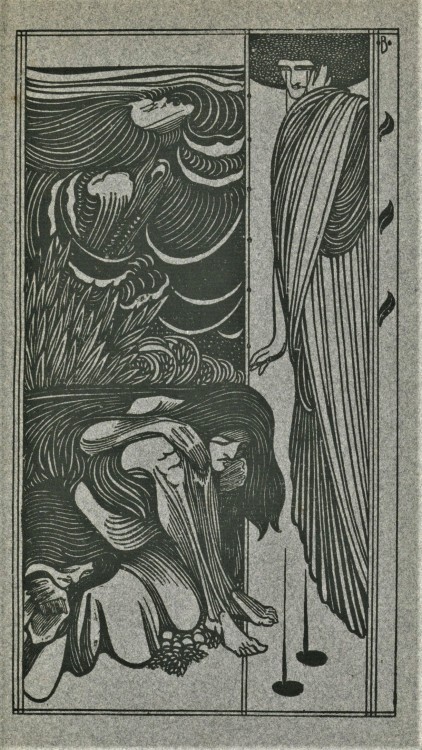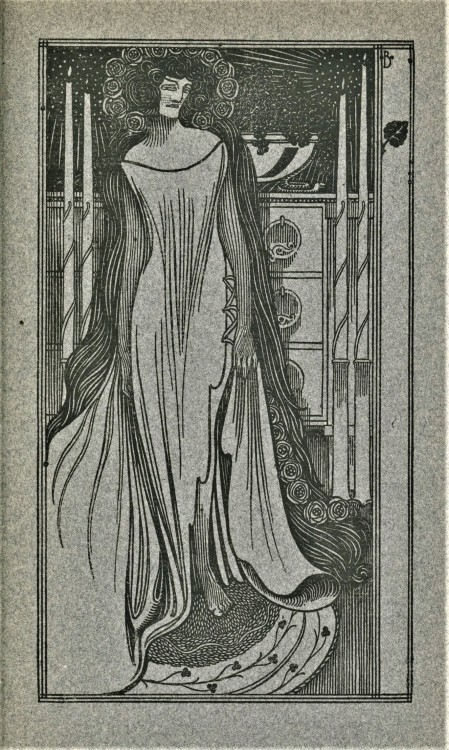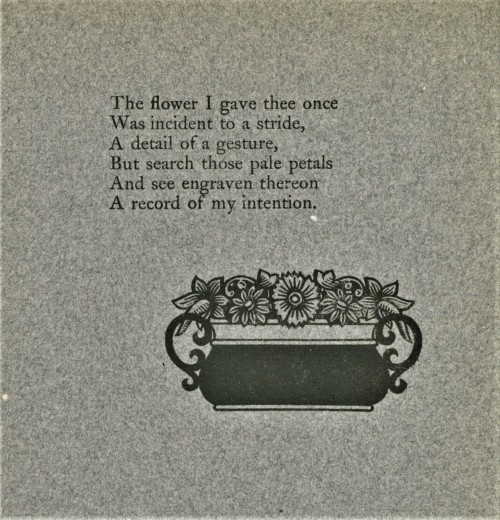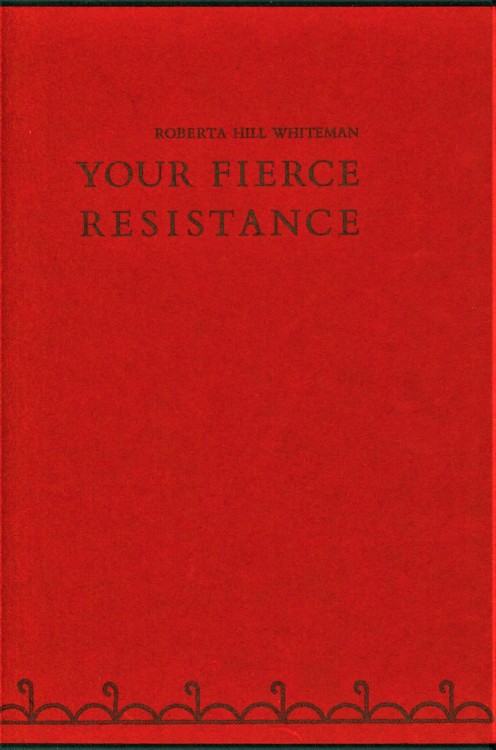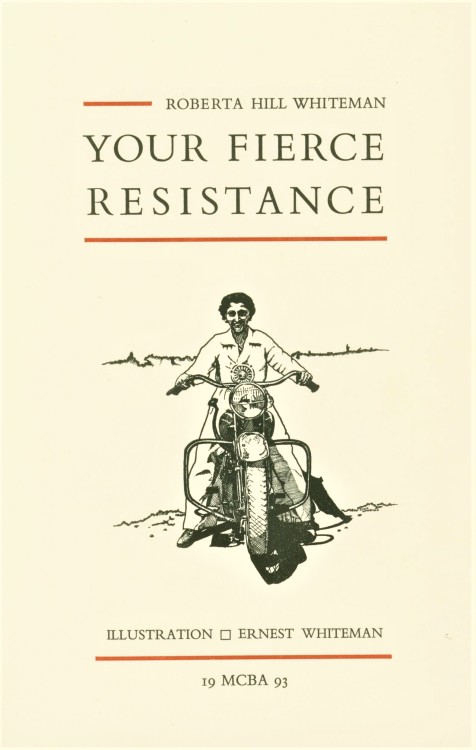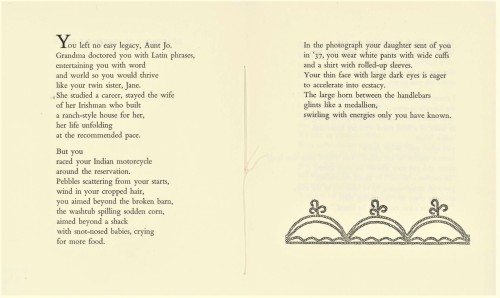#fine press fridays
A Minimalist Fine Press Friday
This week we present a fine-press pamphlet by a poet and an artist noted for their spare compositions. British artist and filmmaker John Christie uses minimalist silk-screened squares to illustrate Scottish poet and physician Gael Turnbull‘s equally sparse poem Nine Intersections, printed in 1982 by Christie at Ron King’s Circle Press in Guildford, England in an edition of 70 copies signed by the poet and artist. This is one of 14 publications Christie printed for Circle Press. Despite its minimalism, or perhaps because of it, the pacing, movement, and rhythm of this little book is wonderfully satisfying.
Viewmore Circle Press publications.
View moreFine Press Friday posts.
Post link
It’s Fine Press Friday!
On this Fine Press Friday we present some pages from Will Bradley’s design and printing of Stephen Crane’sWar is Kind, published in New York by Frederick A. Stokes in 1899. Printed on dark grey paper, this is the only edition of Crane’s second collection of poems, published a year before his death.
An artist, illustrator, filmmaker, printer, and type designer, Will Bradley (1868-1962) was one of the foremost American graphic designers of the 20th century, and this work is one of the most visually-memorable American trade publications of the 1890s. Although Bradley’s style exhibits many of the hallmarks of Art Nouveau, his aesthetic was also strongly influenced by the Arts & Crafts movement. Often criticized as an American knock-off of Aubrey Beardsley, Bradley’s early style was already well-established before Beardsley’s popularity in the mid-1890s.
Our copy of War is Kind is yet another gift from our friend Jerry Buff.
View another post on Will Bradley’s type ornaments.
View moreFine Press Friday posts.
Post link
First Nations Fine Press Friday
Roberta Hill
In association with our post this weekonRoberta Hill, we present the fine press printing of an excerpt from Hill’s 1993 poem, Your Fierce Resistance. Printed in an edition of 150 copies at the Minnesota Center For Book Arts (MCBA) in conjunction with literary center The Loft for theInroads: Writers of Colorseries,Your Fierce Resistance is an excerpt of a longer poem of the same title. The full-length poem can be found in Roberta J. Hill’s (then, Roberta Hill Whiteman) second poetry book collection, Philadelphia Flowers: Poems, published by the Holy Cow! Press in 1996. The edition was was printed by Robert Johnson of the Melia Press and wood engraver, printer, designer, poet, and illustrator Gaylord Schanilecusing Bembo type on Mohawk Superfine paper, with Fabriano Italia endsheets and Moriki Over Arches covers, supported in part by a grant from the National Endowment for the Arts.
Hill completed her PhD with a biographical study of her paternal grandmother, Dr. Lillie Rosa Minoka-Hill—the second American Indian woman to earn an M.D. in the United States. Minoka was ofMohawk descent, but had moved with her husband to the Wisconsin Oneida Reservation where she opened a “kitchen clinic” to serve the Oneida peoples. She’s said to have been adopted by the Oneida Nation of Wisconsin—the only person in the 20th century to be officially adopted by them—and was given the name Yo-da-gent, meaning “she who saves” or “she who carries help”.
The book, however is dedicated to another family member, Josephine Coté, Hull’s matrilineal aunt. Nonconformity must run in the women of this family, as Hill’s writing honors her aunt’s outward resistance to all pressures of assimilatory expectations, both inside and outside the Oneida reservation. Hill recalls a conversation with Coté, in Your Fierce Resistance,
Then
you asked me, “What passes
from a mother to her child?” You shifted your thin body
closer and put your elbows on your knees.
“Its mother’s blood. The blood remembers,”
you said, straightening up to look me in the eyes,
snapping them in your teasing way.
“Whatever’s lost can often be found.”
Roberta Hill’s three poetry collections revolve around the communal feeling of disconnection within the Oneida Nation’s people, where she utilizes nature-centric Native American/First Nations ideals to take a firm stance against the capitalistic consumption polluting our environment. Hill has read her poems throughout the United States and at International Poetry Festivals in Medellin, Columbia and Poesia Do Mundo in Coimbra, Portugal, as well as in China, Australia, and New Zealand. Hill has retired from her position as a Professor of English and American Indian Studies, affiliated with the Nelson Institute for Environmental Studies, in May of 2020, and now lives in the Driftless area of Wisconsin.
View moreFine Press Friday posts.
–Isabelle, Special Collections Undergraduate Writing Intern
We acknowledge that in Milwaukee we live and work on traditional Potawatomi, Ho-Chunk, and Menominee homelands along the southwest shores of Michigami, part of North America’s largest system of freshwater lakes, where the Milwaukee, Menominee, and Kinnickinnic rivers meet and the people of Wisconsin’s sovereign Anishinaabe, Ho-Chunk, Menominee, Oneida, and Mohican nations remain present.
Post link

